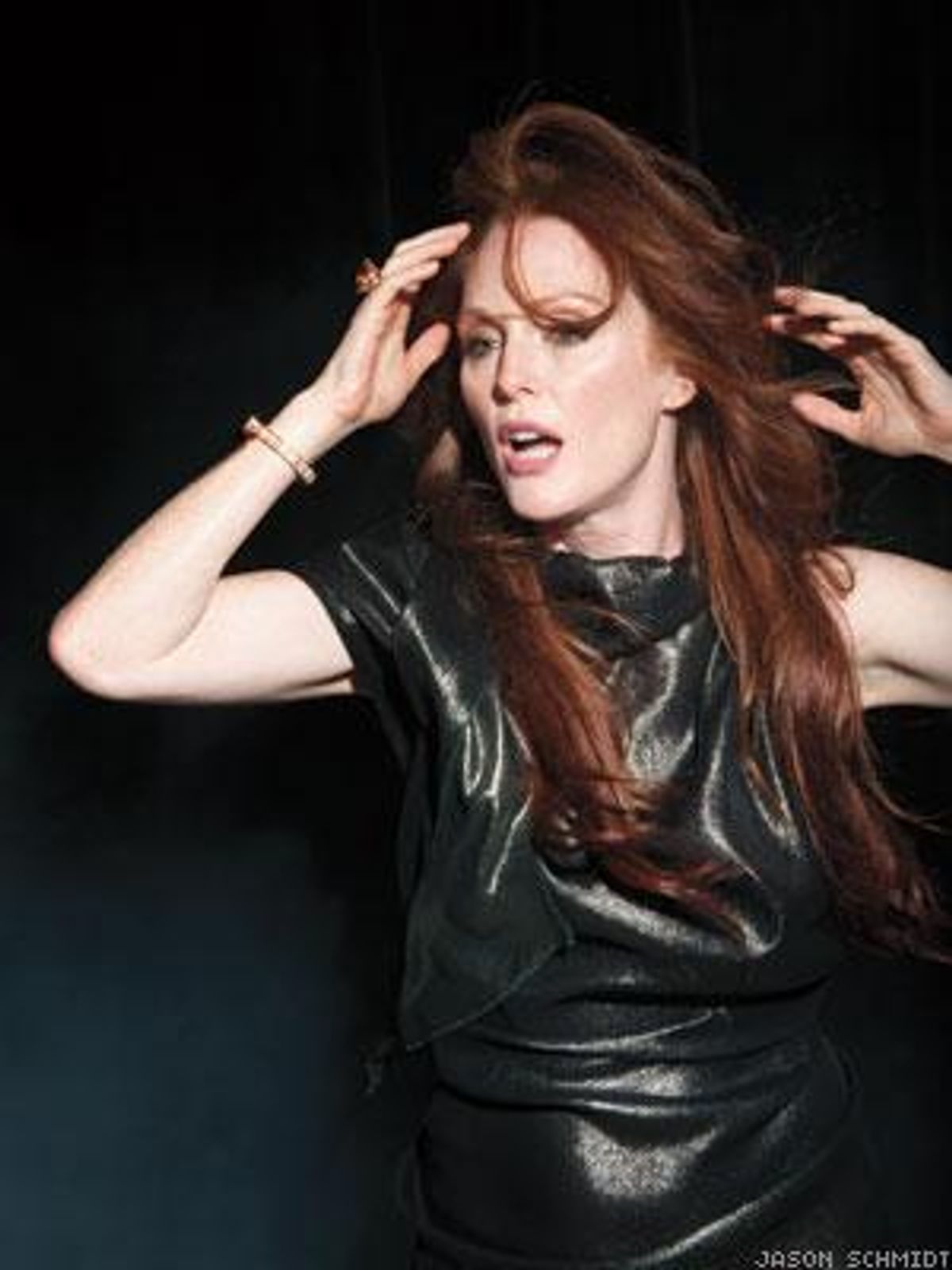
Is there anyone you'd rather ask to ride a white horse bareback in a Ferragamo gown than Julianne Moore? On the day of her shoot, she doesn't hesitate for a second to seize her Bianca Jagger moment. For a woman known for her propensity for, or rather, her superiority at crying on camera, Moore's easy warmth, enthusiasm, and infectious laughter immediately ease the tension in a room where the person least nervous about Julianne Moore getting on a horse is the actress herself. Because as you quickly learn, Moore, who turns 50 in December, does more than just show up.
In an age when many celebrities run the risk of appearing disingenuous for attaching themselves to one cause after the next, Moore's genuine commitment is never questioned. Asked about the roots of her activism, she remembers being 25 and living in New York City, when she had her first experience with what would become the AIDS pandemic. 'I had an agent come back from a trip to Mexico with what he thought was the flu and in six weeks he was dead. A close friend of mine became very active with ACT UP, and I started going to meetings with him, and we'd go to the marches,' she says. 'It was a shocking time in terms of public health and what was happening to gay men. Things just weren't happening fast enough, so that was the beginning for me.'
However, despite a r'sum' that includes unforgettable roles in films like Short Cuts, Safe, Boogie Nights, Far From Heaven, The Hours, and A Single Man, Moore is a strict separatist when it comes to politics and career choices. 'I choose a part because I'm interested in the role, the director, the script. I don't go looking for something that seems political, but by virtue of the roles being intensely personal, it becomes that way,' she explains.
Moore's latest role as one half of a middle-aged couple facing relationship complacency in The Kids Are All Right (which will likely earn her a fifth Oscar nomination) is no different. Although not central to the film, the fact that its two main characters are gay and the way in which their relationship so beautifully illustrates the universality of the human condition can't help but contribute to the conversation currently happening across America about gay families. But Moore feels strongly that The Kids Are All Right is not a Hollywood fantasy. 'I don't think that films predict what's happening in culture,' she says. 'I think that they reflect it. I don't think that a movie like The Kids Are All Right could be made if this wasn't the way that families are living today all over the United States.'
See all of our 2010 Out 100 honorees here.














































